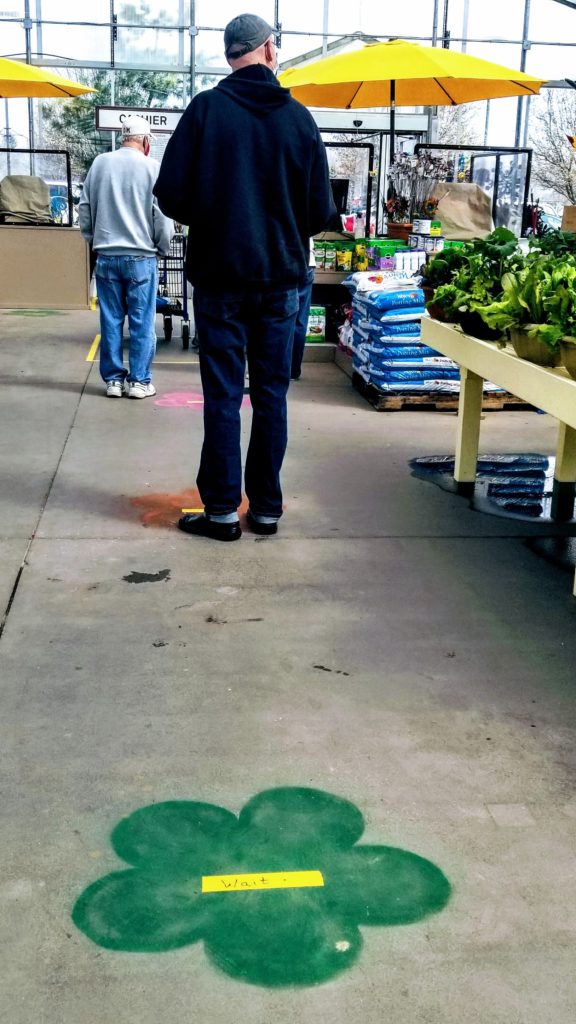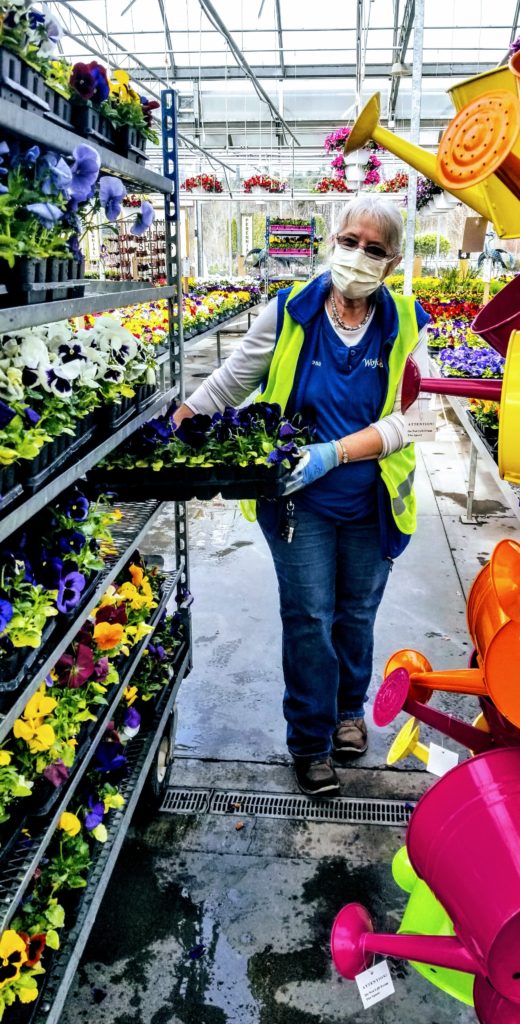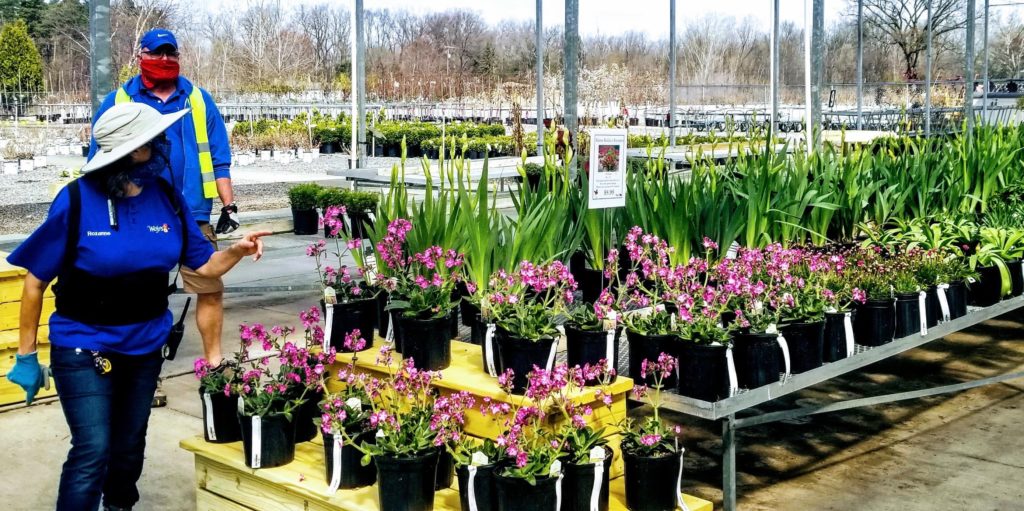By Darlene C. Carey
Amid the Covid-19 fears, the protest echoes, and silent spring of 2020, there lie the roots of Michiganders’ voices. Deeply embedded is the tradition of doing and going. It is no wonder people are so entrenched in their convictions about what they can and cannot do, willing to risk so much, too much.
Michigan Gov. Gretchen Whitmer faced a national backlash for expanding restrictions which impacted small business such as garden nurseries and landscaping. The order. issued April 9, which many Michiganders felt was overreaching, was an attempt to curb the state’s severe coronavirus outbreak.
While many of the order’s provisions have garnered scrutiny, Whitmer’s ban on landscaping work and the closure of garden centers and nurseries did not come without weathering a flurry of outspoken residents. Frustrations were voiced all around. As Mary Oliver, naturalist poet, says in her poem Wild Geese, “Tell me about despair, yours, and I will tell you mine. Meanwhile the world goes on.”
One local landscape gardening merchant spoke to EVM about how he and his nursery are grappling with the situation.
“We think it is important that we all stay safe, and social distancing is working,” says Joe Wojciechowski, local owner of Wojo’s Greenhouse, located at 7360 East Court St. in Davison.

Wojo’s customers observing the “six-foot rule” (Photo by Darlene Carey)
Asked to weigh in on the protests surrounding the stay-at-home order, Wojciechowski states,“We live in a country of free speech.” The Michigan Conservative Coalition and others had descended onto the streets surrounding downtown Lansing in mid-April, creating noise and congestion in opposition to the restrictions.”
Asked if the orders were excessive or if the governor is being safe, Wojciechowski insists, “She was being safe, although most other states consider a garden center an essential business; we have not here in Michigan.”
He continues to explain why Michiganders may find themselves conflicting with the restrictions:
“We do grow about a half million vegetable transplants, along with fruit trees and supplies to support your garden,” he says.
“Since vegetable plants are connected with food, that is why most states consider garden centers essential, not to mention the health befits of gardening on both the body and the soul. Flowers are better than antidepressants for many people.”
He acknowledges the timing is particularly tricky. Asked when the beginning of the planting season “starts,” Wojciechowski states, “That would depend on the plant. Some of the best times to plant trees would be March and April.”
Debates surrounding the timing of getting seeds started is always tied to Michigan’s cool weather, he notes.

Teresa St. Pierre unloading flowers at Wojo’s (Photo by Darlene Carey)
“Flowers like pansies do well in cooler season so April is a great time for them,” he says. “Other frost tolerant items such as cabbage, broccoli, kale, most perennials, and flowers like petunias can be planted now as frost doesn’t hurt them. Most other sensitive plants it is best around mid May, depending on the weather.”
As others speculated on how the order would negatively impact smaller nurseries, Wojciechowski says, “Not being able to open and sell our product has not helped.”
However this did not stifle his efforts in preparing for when business can safely resume.
“We have been working to make our shopping space safer by creating more open spaces, marking floors for social distancing, sanitizing items throughout the day, installing sneeze screens for our cashiers, wearing masks and other things as well,” he says.
Essential workers still remain working to prepare for this year’s growing season. “As far as plants on time,” Wojciechowski says, “we do have our own growing facility, and greenhouse workers are considered essential workers so we have been here safely planting and growing our plants during this time. We have plants that are ready, and will have just as many plants available as we have had other years.”
He says there has been a rise in people buying seeds, due to a fear of food scarcity. According to the International Seed Federation a non-governmental, non-profit organization that represents the interests of the seed industry globally, “Seed is the starting point of the food system. Farmers everywhere depend on access to quality seed in order to grow healthy crops. Seed is a globally traded agricultural product, with international seed trade having increased tenfold during the past 15-20 years. Therefore, unrestricted international movement of seed is critical to ensure food security.”
Asked if he expects to see a rise in people planting their own food, Wojciechowski speculates, “Yes we do, just like when the economy collapsed in 2008 – 2009 there was a large increase in vegetable gardens. History seems to be repeating as many are preparing their own “Covid-19 Victory Garden.”
According to modernfarmer.com, “During World War II, Americans were urged to plant “Victory Gardens” as the nation faced potential food shortages. Popularized by women’s clubs and patriotic posters, the movement caught on, and an estimated 40 percent of the nation’s supplies of fresh vegetables were soon produced in backyards, front yards, church lots and school grounds. The COVID-19 crisis has yet to seriously threaten the food supply, but the sight of empty grocery store shelves has led to calls for “corona victory gardens.”

Roxane Gabriel and Jim Adams prepare outside displays at Wojo’s (Photo by Darlene Carey)
Wojciechowski says garden centers in the southern U.S. already have seen an increase in vegetable plants and seeds, and Wojo’s has increased the amount of vegetable plants produced for the spring.
In the meantime, what can Michiganders do to prepare for the gardening season?
“Work the soil in their gardens, keeping the soil loose and worked up regularly ahead of planting will help keep your weeds down and you will have softer ground to plant in once the time is right,” he says.
While Gov. Whitmer extended the “stay-at-home” until May 15, she stated lawn services, garden shops, landscapers and nurseries may reopen, but must adhere to “enhanced” social-distancing rules, which means restricting the number of workers to those “strictly necessary to perform the in-person work.”
When the fear of Covid-19 subsides, the protests echoes, and spring is no longer silent. what takes root are Mary Oliver’s words of wisdom; “Whoever you are, no matter how lonely, the world offers itself to your imagination. How will you, the lonely, imagine this place we inhabit together?”
EVM Staff Writer and photographer Darlene Carey can be reached at darcar7@hotmail.com.
.


You must be logged in to post a comment.